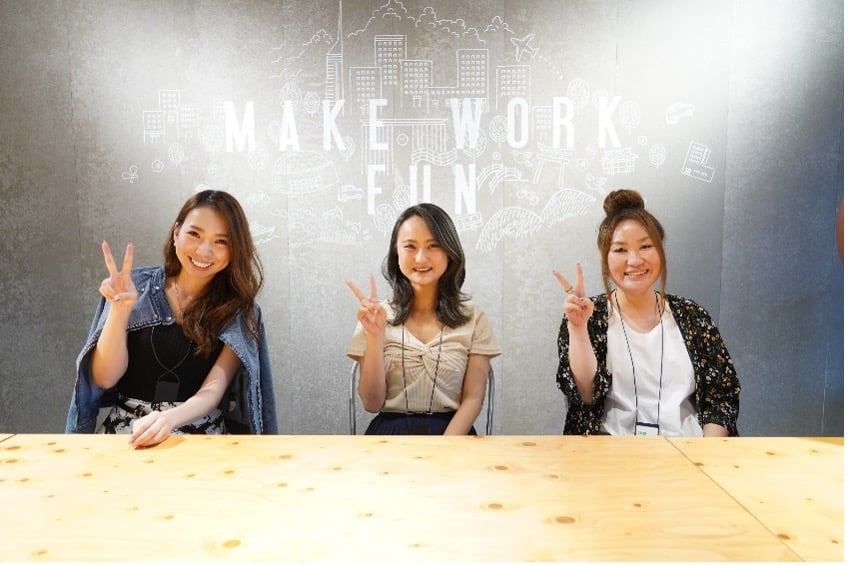[Top Marketing Talks Part 2] Language and Motives Propel the Company Forward
![[Top Marketing Talks Part 2] Language and Motives Propel the Company Forward サムネイル画像](https://blog.lycomm.co.jp/hubfs/Imported_Blog_Media/22ab8e99-1.jpg)
[Notice] Effective October 1, 2023, LINE Fukuoka has changed its company name to LY Communications. Articles published on or before September 30, 2023 were written with our former company name.
※This article was updated on April 1, 2020.
This is Saori Yuge with the LINE Fukuoka Press blog.
Continuing on from Part 1 where LINE's CSMO Mr. Jun Masuda and LINE Fukuoka's COO Mr. Yusuke Suzuki discussed Fukuoka City and LINE Fukuoka from a marketing standpoint, the theme for Part 2 of the interview is "the Language and Motives That Drive the Company Forward."
We asked them about what they think is important for the company's growth from a management standpoint. They discussed the reason for selecting "WOW = No. 1" as the value standard for the company and its employees, as well as what they individually found as the key motives for driving the company forward.
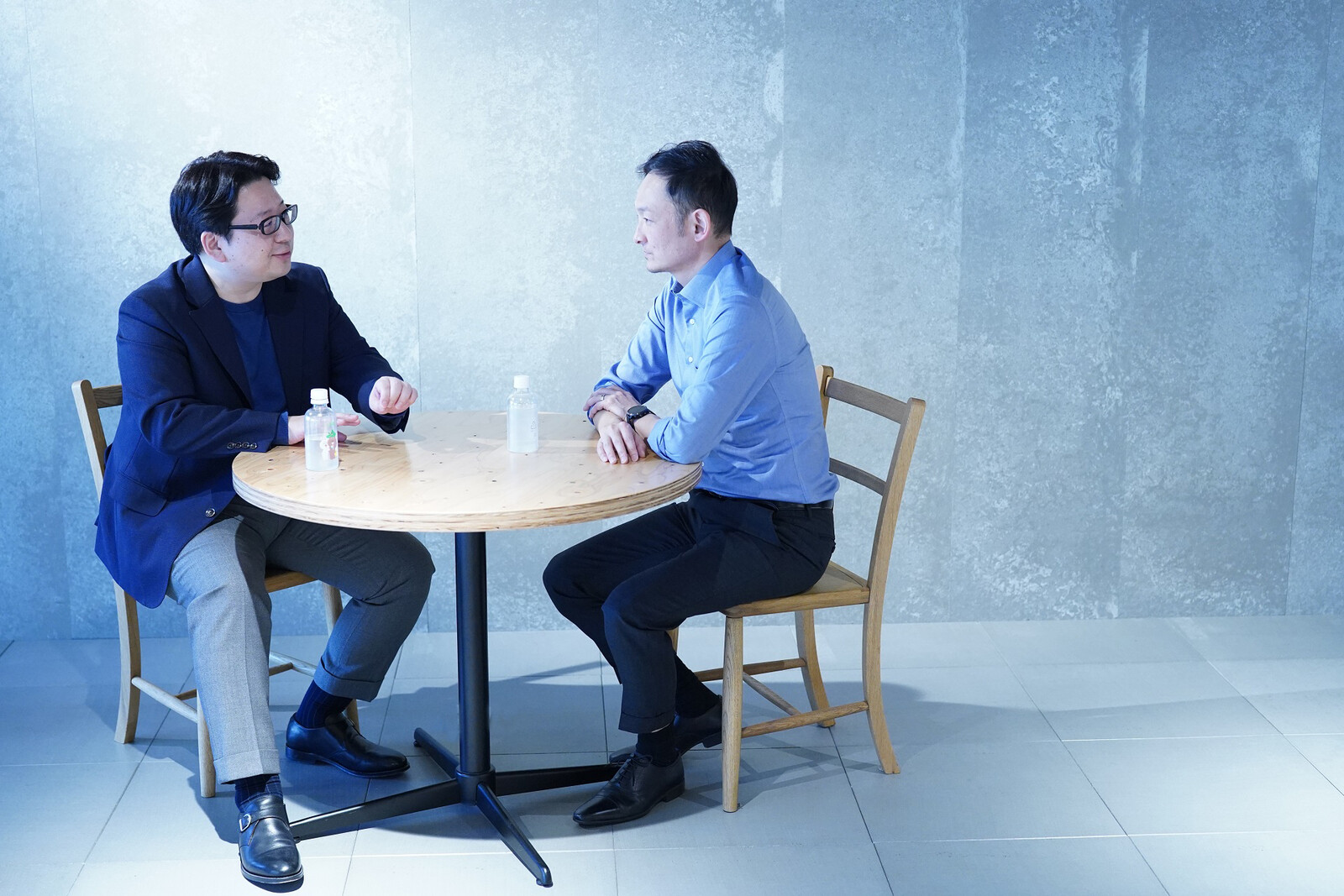
Contents
Why we can declare we're "aiming for No. 1"
Masuda: LINE as a company has the "LINE Style Book," which is a collection of what the LINE mindset is. In 2019, in that LINE Style Book, we defined "Wow," an unprecedented experience that's so amazing you just have to share it, as "No. 1". What this really means is that there's no point if it isn't No. 1, just being unprecedented and amazing isn't good enough. And each LINE site should be aiming for No. 1 in their respective locations.
And if that's the case, what's No. 1 for the Fukuoka team?
WOW = No.1 and LINE Style isn't just for our front-facing departments, it's also necessary for the back office that supports them. I think that LINE Fukuoka can become an even better team by always thinking about how to create "Wow" in their work, and chasing after what "Wow" is for becoming the world's best Customer Care and Monitoring teams.
Suzuki: Right. Actually about three years ago LINE Fukuoka's Operations Dept had the slogan of "First No. 1 in Japan, after that No. 1 in Asia."
To tell the truth, at first it didn't click with anyone at all, and people were saying that there's more things for us to do at an earlier stage, or wondered what the definition of "No. 1" was. If you really think about it, there's only a handful of people who have really experienced being No. 1 or aimed for it, whether in sports or in business.
But we kept saying it for three years, and along the way the phrase "WOW = No. 1" came around. Then it started to sink in, and the situation changed to people saying that it might be a good way of thinking. For example, our monitoring department which prevents inappropriate content from being posted on the internet made the resolution to contend with other global monitoring filters and become the best in the world. That made me realize that continuity is important.
Masuda: I agree. The managers and team members that created LINE have always had the goal of creating the most used service, so we've always been taking actions aiming for No. 1, even if we didn't put it into words. So at first I thought it was kind of lame to put it into words, and I also thought there were other philosophies, like other meaningful things existing besides No. 1.
But we decided to assert that WOW = No. 1, and what we should be doing as a company is continue building until we're No. 1.
If we can't become No. 1, then that means we aren't fulfilling our mission and vision.
That's why we decided to declare that we're aiming for No. 1 two years ago without being embarrassed about it.
Suzuki: I really sympathize with that.
There's a world that only people who have seriously aimed for No. 1 or thought about what No. 1 actually is can understand, and it's packed with important things.
Even if it's still far away from us, the process of continuing to think about it is important. In the end, if you want to accumulate good work, the language we use is important.
Masuda: I agree. You can still accumulate one day after another, even if you don't proclaim that you're aiming for No. 1. But having the slogan of No. 1 creates a gap between where you are and where you want to be. No. 1 is generally really far away, and to bridge the gap you have to think and act more. If you're going to do that, you really have to shoot for the moon.
If you want to grow to twice your current scale then you can think about the way forward logically, but for a growth of ten times you have to take a totally different approach. The way you think and the way your team works changes, so I think aiming for No. 1 was a good thing, too.
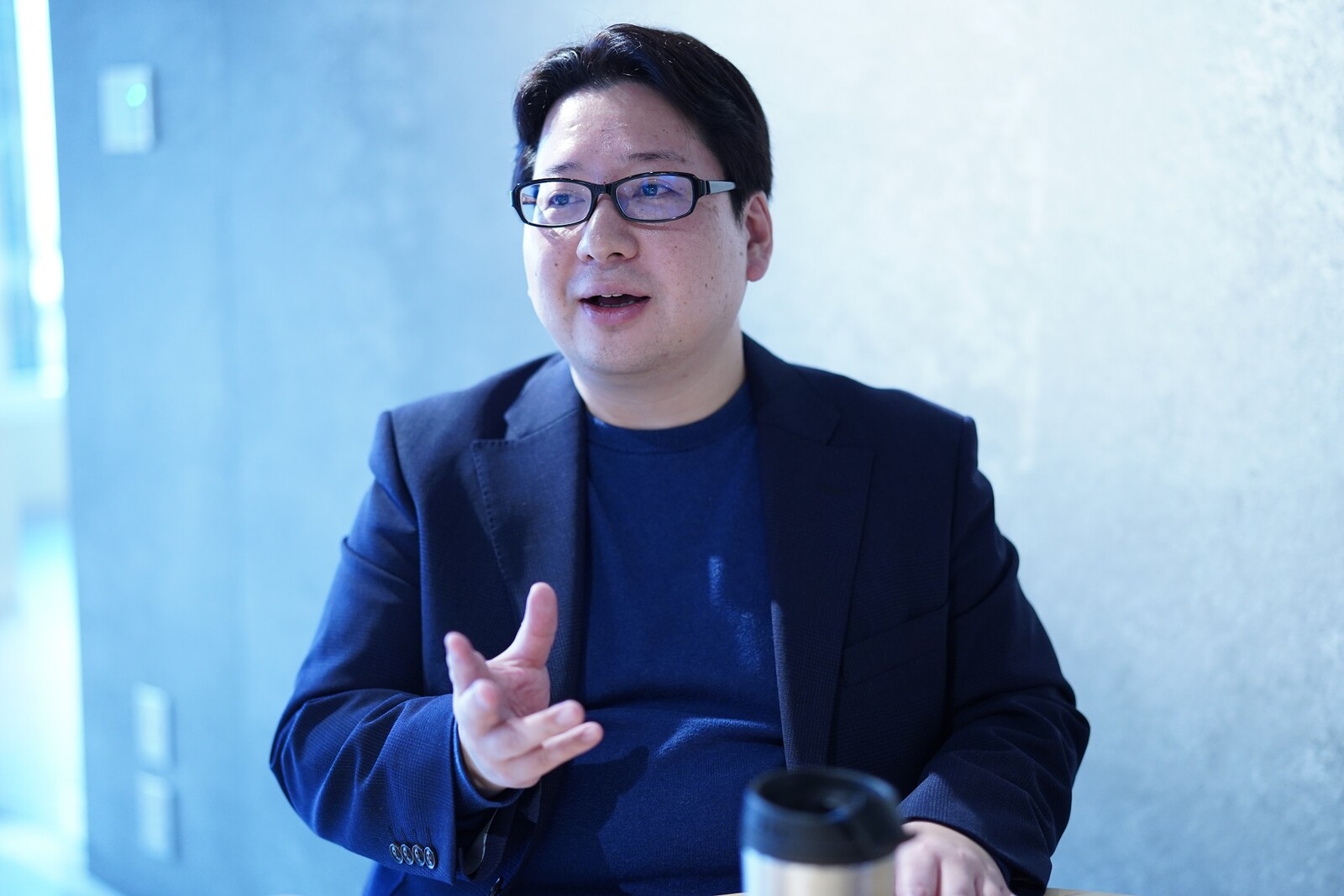
The meaning behind continuing to discuss highly abstract themes
Suzuki: When the keyword No. 1 appears, then arguments like "I'm not working to be No. 1" come up. And I think those discussions themselves are a good thing, because when they happen you can understand what everyone is thinking.
And for the word "wow" there's no way to measure what is or isn't one, and that's a good thing too. Because when someone says "that's a WOW" you can see from their reaction whether they think it isn't anything special or if it's actually amazing, and gradually shape it. I think a word with no way to measure it like that can have kind of effect.
Masuda: Right. We held our first internal awards event, the Global WOW Project Awards recently, and that event was a place for us to reconfirm what WOW is for the LINE Group as a whole.
The word "Wow" itself is a very abstract term, so even if managers think projects they nominated are a "WOW," if everyone discusses them they might argue that it's not actually a "WOW." So after that discussion, we visualized what everyone thought a "WOW" was, and employees could see that and accept what our definition for it was.
Accumulating a lot of discussions is important.
Even in normal conversations, talking about what a "Wow" something is or discussing what No. 1 we're chasing is important for driving the company forward.
Suzuki: I agree. For example, "What exactly is LINE Fukuoka?" is a question I get asked a lot both inside and outside the company, and I believe thinking about the answer to that question is the most important thing.
We should be discussing what LINE Fukuoka is, and what we should be placing value in and working hard on.
We began LINE Fukuoka's LION award system 4 years ago. But if we don't know what exactly LINE Fukuoka is, or what our value is in the first place, what's the point in having an award system?
But starting an award system created discussions about what is and isn't OK, and what should we be aiming for from here? In the process of evaluation, if the leaders talk frankly, we can start to see what everyone is thinking. Starting this year we're going to make the presentation evaluation public to our team members, and it's really important for the members who see them to think things like "I wonder if this is really the future we should be aiming for."
Rewarding people for doing work that is highly abstract and has no answer, requires thought and is hard to evaluate is really important. If we do something that can be completely measured, then that's not really exciting for the company as a whole.
Masuda: I understand, when people are excited the company is definitely moving in the right direction.
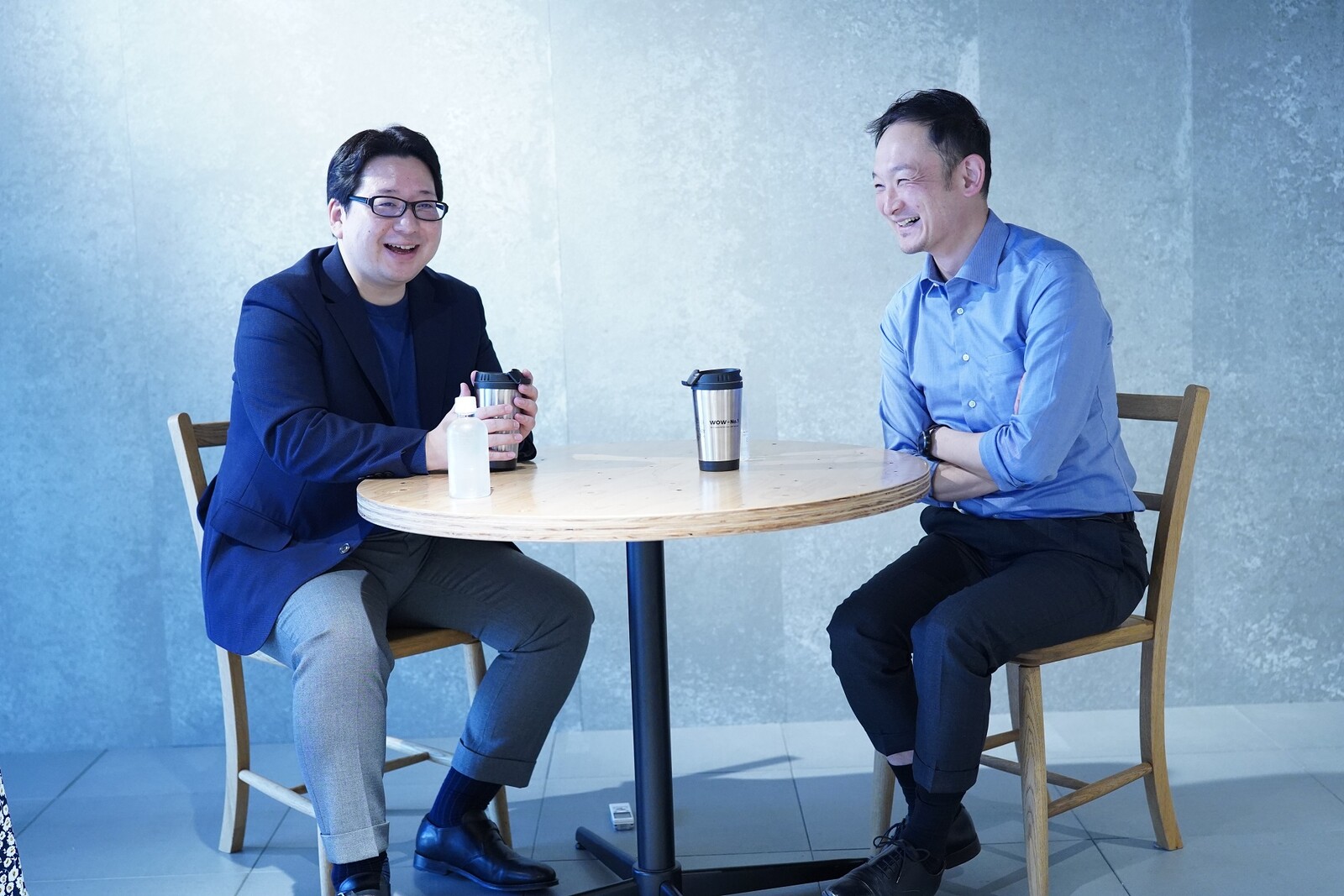
The clues to "Why" (Motives) are in the "axis" of choices and decisions
- This is related to driving the company forward. At the Kick off meeting in January our CWO Mr. Shin (LINE Corporation Representative Director Chief WOW Officer Shin Jungho) talked about "motives" for work, or in other words the importance of "Why".
In recent years, the importance of "Why" is something the entire business world, not just the LINE Group, has been talking about. But I feel like finding that must be difficult, so how do the two of you find it?
Suzuki: Rather than finding it, I can't help but think about it. First of all in my case, I'm not a very optimistic person. That might just be the personality as someone who built their career in planning, but while on one hand if you think positively about what you'd like to happen, 99% of new challenges result in failure, and to get closer to success you have to think about a lot of negative things.
That's true for both work and life, but in the end you have to choose. When the time comes to choose, I can't if I don't have my own axis.
I think that axis is my own personal "Why" and I can't choose without it in the first place, and even after I choose I'm still unsure.
Sorry to be abstract but, but I can't help but think about how I can contribute to the company, or what I can do to be happy.
- Is that "axis" something that became clear to you through your career?
Looking at your profile, I get the impression that you're career has been relatively smooth sailing...
Suzuki: I never really intended for it to be smooth sailing. I was born and raised in Fukuoka, and went to Tokyo as a fresh graduate to work as a permanent employee at a large electronics maker, and left that company when I was 26. After that, I joined a brand new advertising firm as a contract employee and started working in creating recruitment advertising, which I had no experience in. At that time I was already off the rails, or thought that I had to live like a weed.
This is a digression, but when I joined the advertising firm I had just gotten married, and my wife was against me quitting a job as a permanent employee to join a company as a contract employee. But the reasons she opposed it were because she didn't think I was committed enough, and didn't want me to choose a job just because I like it.
I actually rejected the offer to join the company once. But about three months later the company contacted me and asked me if I would talk with them again.
We talked at an izakaya in Shimbashi about the appeal of doing work assisting corporate recruitment for about an hour, and then someone from another country jumped into the conversation. He told us that he heard what we were talking about, and asked whether we would help with recruitment his company, if we were working in that field. I looked at the business card he gave me, and he was the President of a Southeast Asian company. And then the three of us talked about that company's recruitment for another hour and a half.
I think that person might have been planted. (Laughs) It was simple that time, but when I saw how happy he was, and was moved by the fact that it could be such useful work.
The employees I talked to were really lively at work as well, so I realized this was a place I wanted to work no matter what I was doing. So I talked to my wife again, and this time she told me to do it. She asked me if this is something I would want to do if my contract was broken and I couldn't choose where I worked, and I said yes. And she told me if that was the case, then it was fine. It seems like in those three months, my level of commitment changed in my wife's eyes.
That happened once I had made the resolve to work without choosing the location, I never had the intention of being on a "good path." Conversely, through that experience I started to think about why I'm doing my job, and what I can do to contribute something to the world. Sorry, I might not have really answered your question.
- It feels like what you said about being moved by doing work that was so helpful to people is a clue to the answer. I guess it's also possible to create a "Why" from doing what you can to make other people happy.
Suzuki: I guess helping people is my "Why." People talk often talk about whether they could live alone on a deserted island, and I don't think I could. And that's because I don't think I could stand living without receiving gratitude from at least one other person, or even an animal. I don't think I could go on living without being able to contribute something to someone else and make them happy.
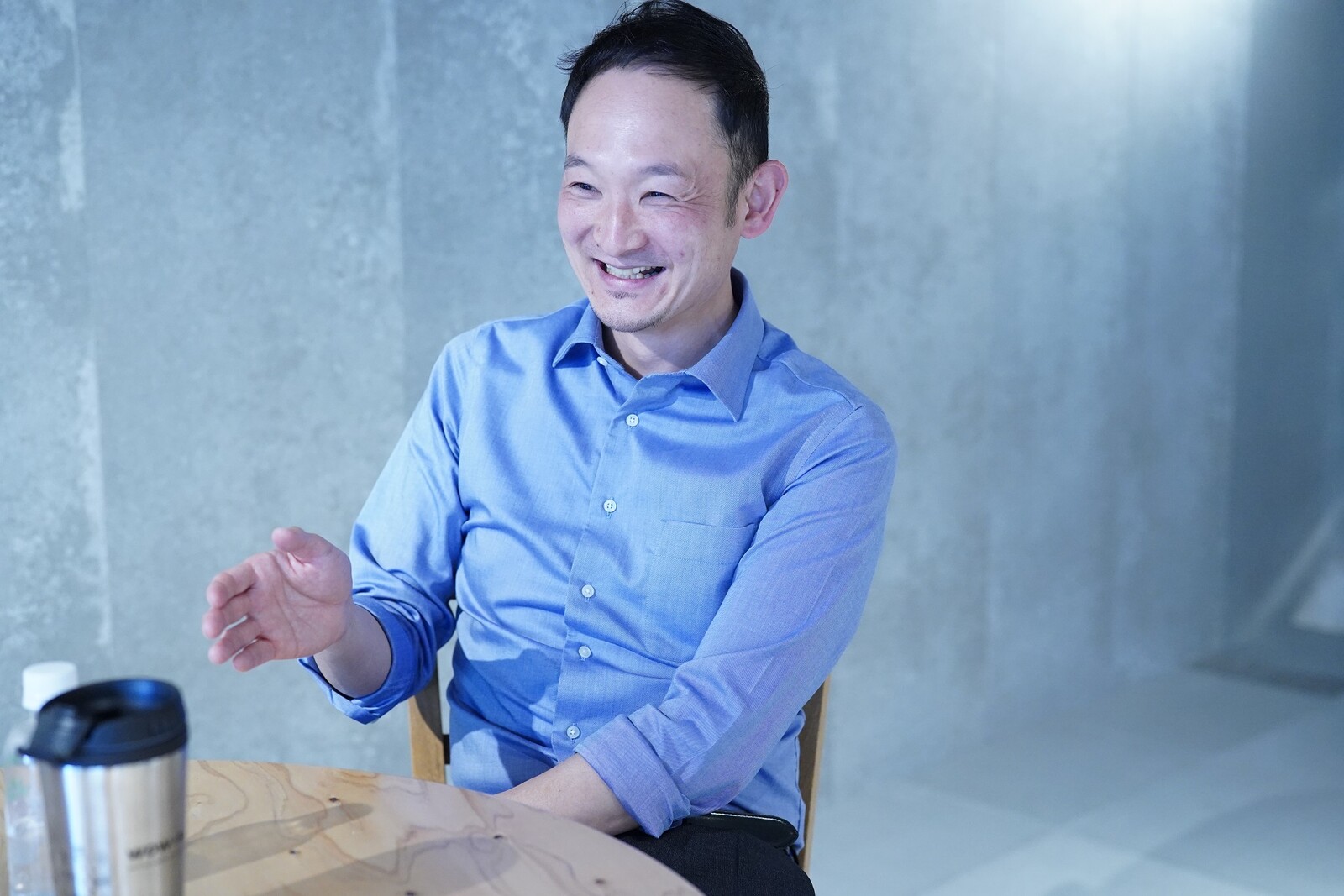
Masuda: Everything is possible because of the people around us. I was kind of a weird kid in elementary school. At the time I often said that I wanted the moment anyone who met me to be a turning point in their life, and whether that was a turn for the better or worse didn't matter.
Suzuki: For anyone? (Laughs)
Masuda: Of course I don't think it's okay for it to be a turn for the worse anymore, but I still want meeting me to be something that influences them for the better, or change for the better by engaging with me.
For example, when I joined LINE's predecessor company, it definitely wasn't in a good state. I joined to make their search service a success, but several search engines had already been released, and in the end no one was beating the bigger players. And I had already failed once in the search engine business at the previous company I belonged to.
I decided to join the company without knowing how difficult things would be because I met Mr. Shin. I was shocked to meet someone I hit it off so well with, and could imagine the same things as.
While on one hand Mr. Shin is a pro at creating new products, at the time he didn't know much about the Japanese market. So if you add me to the marketing or business departments, I thought we could really change things for the better.
I started my life as an adult without a clear path in the first place, because I dropped out of high school in my first year, and started working in a factory.
The reason I quit school was because I skipped class so much that my teacher told me something to the effect of "if you're not going to study, you don't have to be here." And I thought that was such a great idea, from the bottom of my heart.
Until that point, I think I was probably conscious of the path I was on. Something like after middle school you go to high school, and after three years in high school you... and so on.
But in high school I had the option to quit, and after that I started to think about all of my options. I started to believe I didn't have to think about the risk of losing something. I think that's my strong point.
What's most important when you're thinking of a plan or a strategy, is that you don't become a slave to something. People unconsciously follow customs, but I think we should ignore modern customs like believing that just because you've come this far, you need to see things through to the end. If you don't see a path to victory, then quit. I also doubt the idea that we were only able to come this far just because it's our service. There's meaning in simply overcoming taboos like that to create value that already existing players haven't, and in the process of living my life up to now, I've gotten good at making strategic decisions of that nature.
To put it in terms of an "Axis" like you mentioned before, the axis for choosing is "whether or not I can change things for the better." So I don't go to places that are already winning, I usually join companies that are struggling and I think I find meaning in doing that.
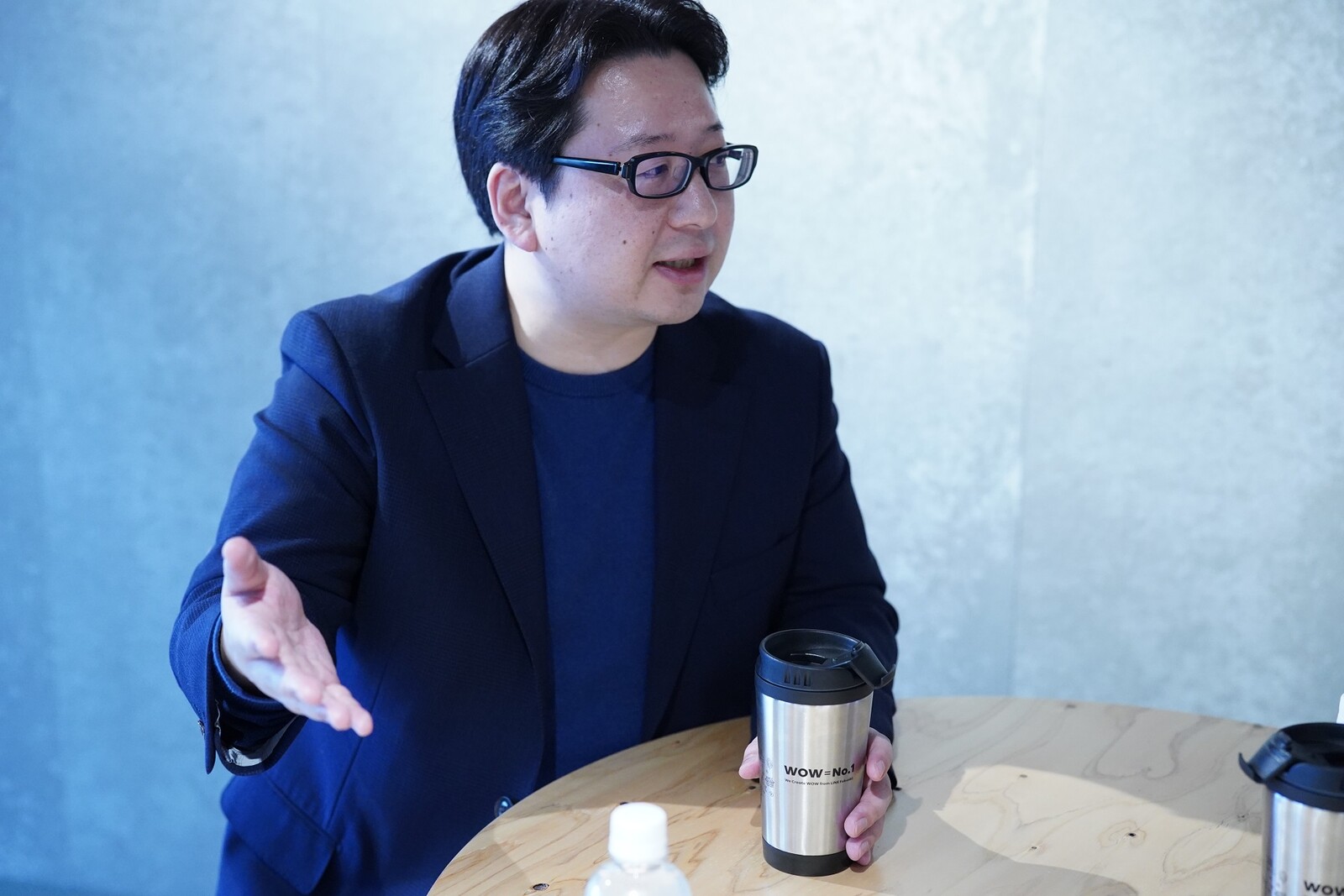
- I feel like we've mostly gotten your answers, but what do the two of you think the "Why" is for LINE and LINE Fukuoka?
Suzuki: When I quit my last job, I also thought about going independent.
But I also have experience in recruiting, and my passion for going back to my hometown of Fukuoka and creating rewarding work grew. I wanted to do work that I could think was truly helpful to do other people, and something I enjoyed. Of course that already exists in Fukuoka, but I thought I might be able to create more appealing jobs like that in the city. And LINE Fukuoka just happened to be established at that time.
Even though LINE was still a brand new service, they were already setting up a second location in Fukuoka. I figured it must be really chaotic inside the office. (Laughs)
But joining a company like LINE and building it sturdily in itself contributes to society, and we can also contribute to society through our service. Maybe my reason for joining the company was because I thought I could use my strong points to help people, and that feeling hasn't changed today.
- What about you Mr. Masuda?
Masuda: I don't think there's another company trying to infleunce society as much as we are. Even though it's difficult to make one thing happen, LINE is a company that dislikes the status quo, and is trying to change more and more various things.
It's a wonderful thing, and it's really rewarding to be a part of it. I think LINE syncs up really well with my desire to change things for the better that I mentioned earlier.
If I were to just think of living my life, it might be okay if I didn't work at LINE, and I might be okay working by myself. If I worked by myself making decisions would be faster, and I could do what I want. It also might be less stressful, but there are things I wouldn't be able to do if I wasn't a part of a team and working together with other LINERs.
What I can do alone, and the influence I can impart doesn’t amount to much, and that's a feeling that gets stronger each year. To go even further, we can't do it without those around us.
In the past ten years, LINE has changed how the world communicates. I take pride that we've left a brilliantly shining mark on internet history.
And in the next ten years, and the next paradigm shifts to come, I believe that LINE will make its mark on history once again. And that's why I'm here today.
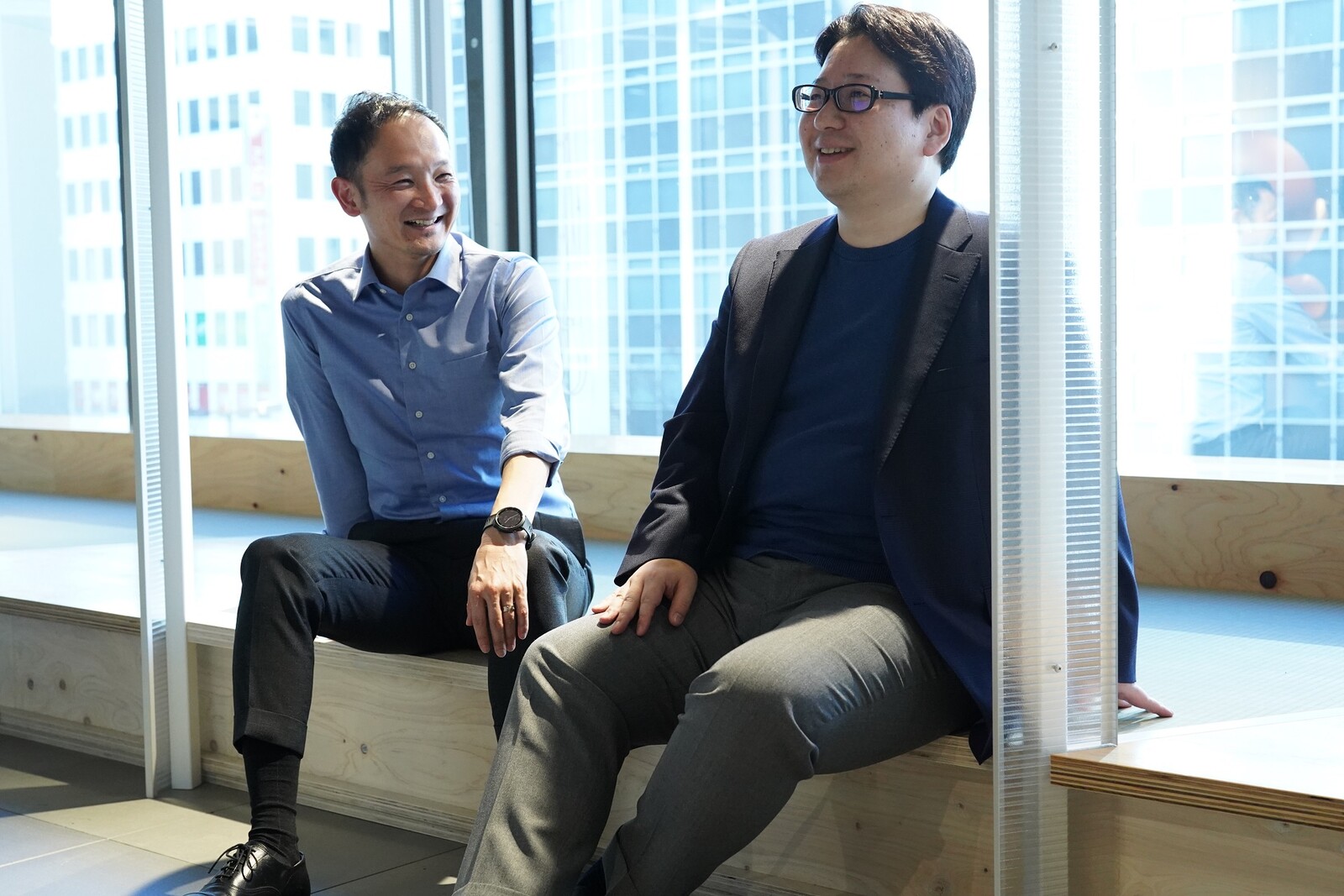
We hope you enjoyed this interview with Mr. Masuda and Mr. Suzuki!
LINE Fukuoka's employees are challenging themselves each day with their own "Motives" together with leaders like this. In addition to bringing you announcements, trajectories, and the results of the "Challenges" LFK and the LINERs working here take on, our articles offer you a look at the culture and environment that serve as the platform for those challenges.
Related Articles
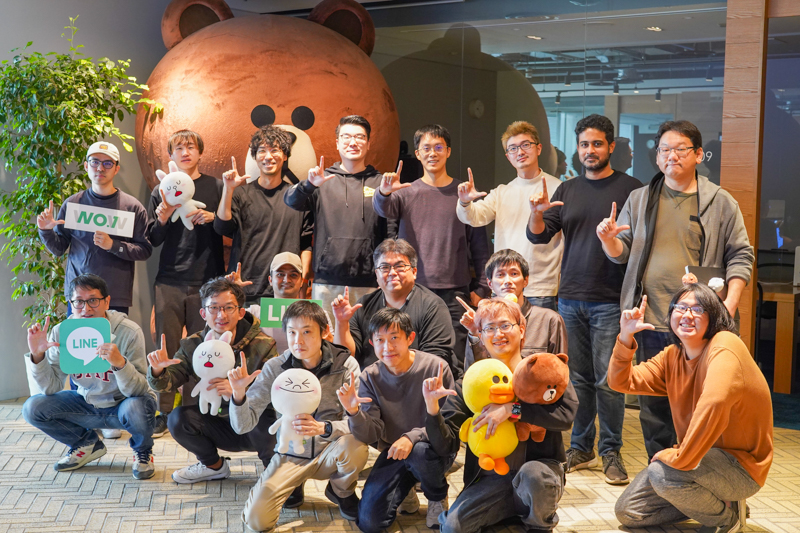
[Event Report] Offline "Office Days" for a Fully Remote and Diverse Development Team
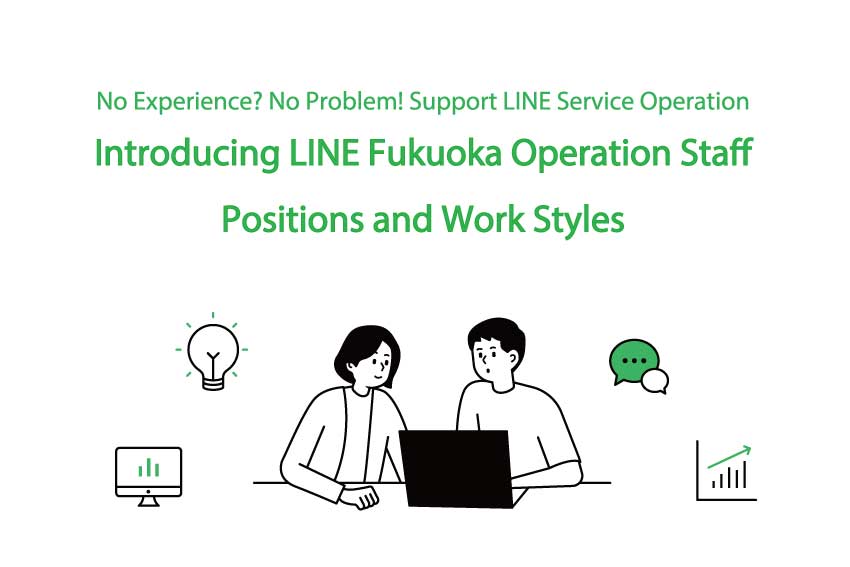
No Experience? No Problem! Introducing LINE Fukuoka Operation Staff Positions and Work Styles
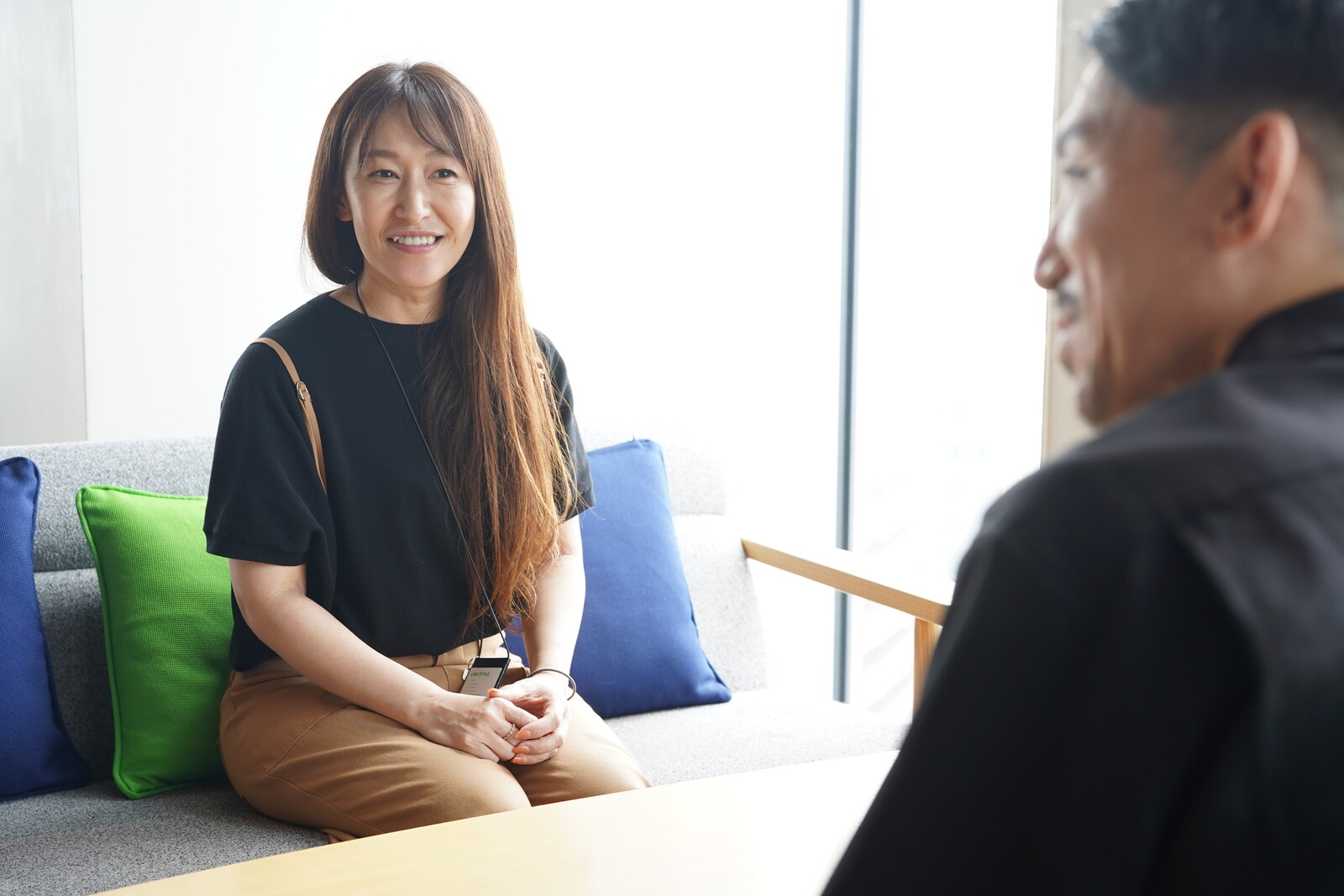
Introducing the Departments that Support the Growth of LINE Search!
